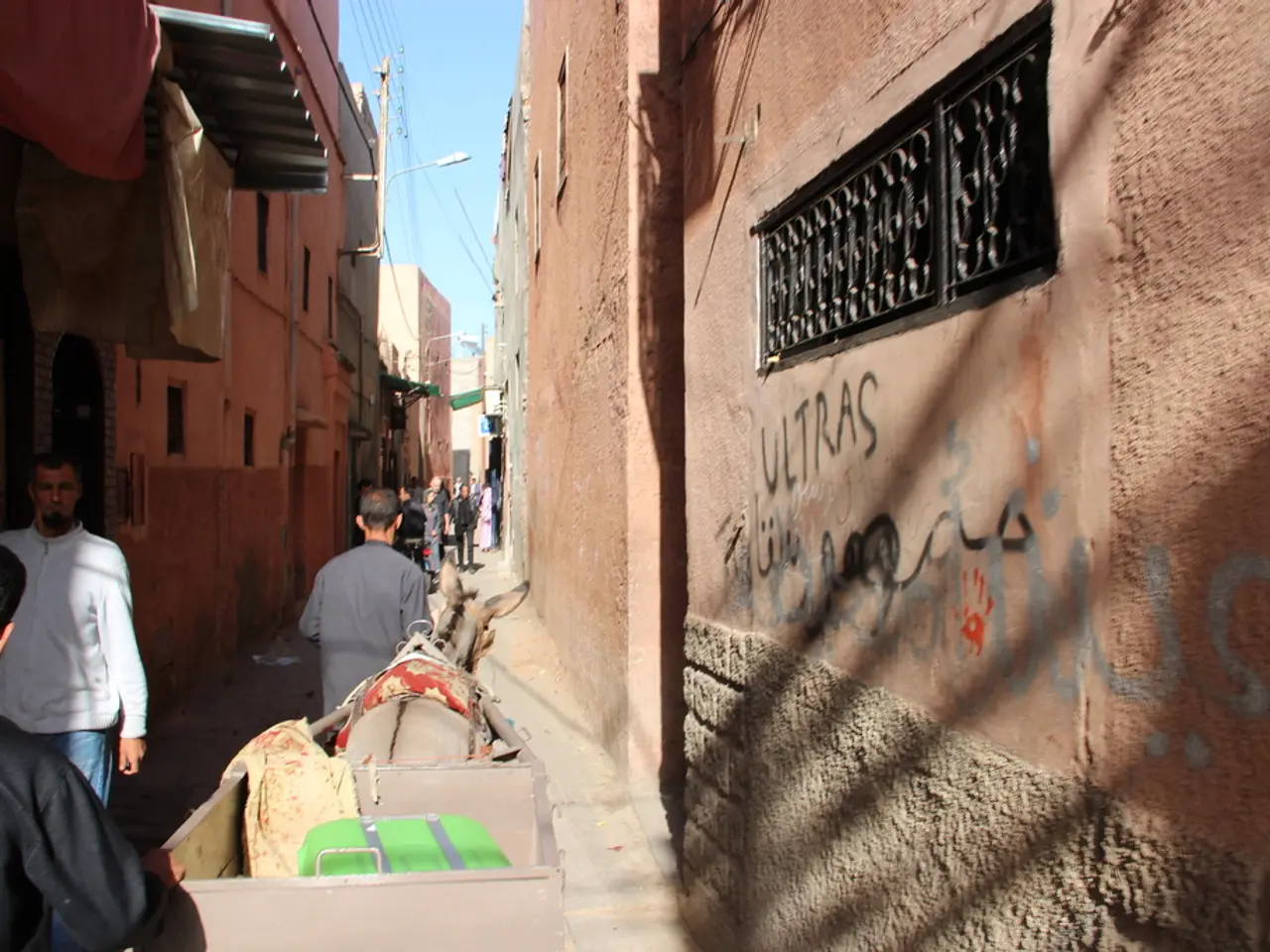Israel's Ardent Campaign Led by Netanyahu for Expanded Territories
In the political landscape of Israel, tensions are running high as the government, led by Prime Minister Benjamin Netanyahu, pursues a hardline stance in the ongoing conflict with Gaza and the West Bank. This approach has sparked significant opposition, both domestically and internationally, and has raised concerns about potential catastrophic consequences.
The coalition government's proposed military takeover of Gaza City has been met with criticism from various quarters. The Permanent Observer of Palestine to the UN has stated that this escalation contradicts international law, the will of the international community, and even the preferences of a majority of Israelis, according to opinion polls. This suggests divisions within Israeli society regarding Netanyahu's approach.
Two right-wing ministers, Ben Gvir and Smotrich, see themselves in a historic struggle for a Greater Israel, including the Golan Heights, which belong to Syria. Meanwhile, the "Kahanists" close to Netanyahu have proposed a plan to make Nablus, Hebron, Ramallah, and Rafah semi-autonomous enclaves, a move that would prevent a two-state solution.
The potential consequences for Netanyahu's government include deepening political division within Israel, international condemnation, and worsening humanitarian conditions in Gaza, where basic needs such as food and water are increasingly scarce. For the opposition, this situation could provide leverage to challenge the government's policies and rally public opinion against further military escalation.
In a concerning development, since October 7, 2023, the two right-wing ministers have armed many settlers in the West Bank and established a civilian militia for their protection. Former Prime Minister Ehud Olmert has warned that the radical settlers are committing pogroms in the West Bank and pose a threat to liberal Israel.
The Supreme Court has intervened in the political situation, preventing the dismissal of Attorney General Goharav-Miara and promising to review the opposition's appeal within 30 days. The justices are likely to use the entire timeframe for their decision, as they also stand in the way of the Greater Israel project, which violates international law.
On the international front, the UN Security Council is convening an emergency session to address the crisis, reflecting global concern and potential diplomatic pressure on Israel. The UN Secretary-General and the International Court of Justice have emphasized the need to end the occupation and seek a viable two-State solution, underscoring the longstanding legal and political context underlying the conflict.
In summary, Netanyahu's coalition government is pursuing a hardline stance marked by military escalation, while the opposition and international actors advocate for restraint and a diplomatic resolution, warning of severe humanitarian and political consequences. The situation remains tense, with divisions within Israeli society and international scrutiny on the rise.
[1] References: Various news sources, August 2025.
- The ongoing policy and legislation surrounding war-and-conflicts in Israel, particularly the proposed military takeover of Gaza City, is generating criticism and concern not only internationally, but also within Israeli society.
- The General News has reported on the formation of a civilian militia by two right-wing ministers in the West Bank, a move that has been deemed dangerous by political figures like former Prime Minister Ehud Olmert, citing potential crime-and-justice issues related to the radical settlers' actions.
- Crime-and-justice concerns are also arising from the actions of the Kahanists close to Netanyahu, who propose turning Nablus, Hebron, Ramallah, and Rafah into semi-autonomous enclaves, a move that could potentially limit justice and security for all involved in these regions.






